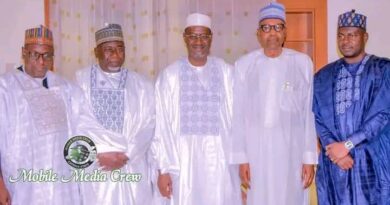How AI is Shaping the Future of Digital Rights in Nigeria
By Ali Sabo
Artificial Intelligence (AI) is quietly changing how Nigerians live, work, and interact online. From the way social media platforms filter content to how government agencies track data, AI is becoming deeply embedded in the digital experience. While this technology offers opportunities to expand access and improve services, it also raises serious questions about privacy, freedom of expression, and who gets left behind.
In recent years, Nigeria has seen a growing conversation around digital rights. These are the rights that allow people to associate, assemble, access, use, and express themselves freely on the internet. They include the right to privacy, freedom of speech, and protection from online harm. As internet access spreads across the country, these rights have become more important, but also more vulnerable.
AI plays a complicated role in this picture. On one hand, it can support digital rights. Tools powered by AI can make online spaces safer by identifying and removing hate speech, misinformation, cyberbullying, and fake news. AI also powers assistive technologies that help people with disabilities access information.
But the other side of AI is less promising. In the wrong hands, AI can be used to monitor citizens without their consent. Facial recognition, surveillance software, and data tracking systems are becoming more common and many operate without clear laws to govern them. This leaves citizens vulnerable to abuse, especially in a country where civic freedoms are already under pressure.
There is also the problem of bias. Most AI systems are trained on data, and if that data reflects real-world inequality, the technology can reinforce discrimination. For example, an AI system used to screen job applicants might favor urban and the privileged candidates and ignore those from rural or marginalized communities. Because these systems are rarely transparent, it’s hard for users to know when they’re being treated unfairly or how to challenge it.
Nigeria’s digital rights story didn’t begin with AI, but the challenges are now becoming more complex. Internet shutdowns, social media regulations, and/or censorship are part of the complex story. Now, AI adds a new layer that’s harder to detect and even harder to control. The urgency to act is growing.
This is where civil society comes in. Organizations like the Centre for Information Technology and Development (CITAD) have been speaking out on digital rights and the need to protect and respect the digital rights of the citizens for years. They have trained young people, activists, human rights defenders and journalists on how to protect themselves online, monitored policy trends, and challenged laws that threaten free expression. Now, they’re turning their attention to AI, raising awareness about its benefits and dangers, and pushing for more transparent and inclusive policies.
CITAD has also been part of broader efforts to ensure digital inclusion, especially in northern Nigeria, where internet access and digital literacy are still limited. By educating citizens on how digital tools work and how their data is used, the organization is helping to build a generation of informed users who can speak up when their rights are at risk or violated.
As AI continues to evolve, the role of civil society will only become more important. Government and tech companies should not be the only voices in the room when decisions are made about how these technologies are used. There needs to be a seat at the table for digital rights advocates, community leaders, and everyday citizens.
AI can be a force for good in Nigeria, but only if it is guided by strong protections, ethical use, and public accountability. Without that, it risks becoming another tool of exclusion and control. The challenge now is to make sure that AI works for the people, and not against them.
Ali Sabo is the Digital Rights Officer at the Centre for Information Technology and Development. He can be reached through: asabo@citad.org





